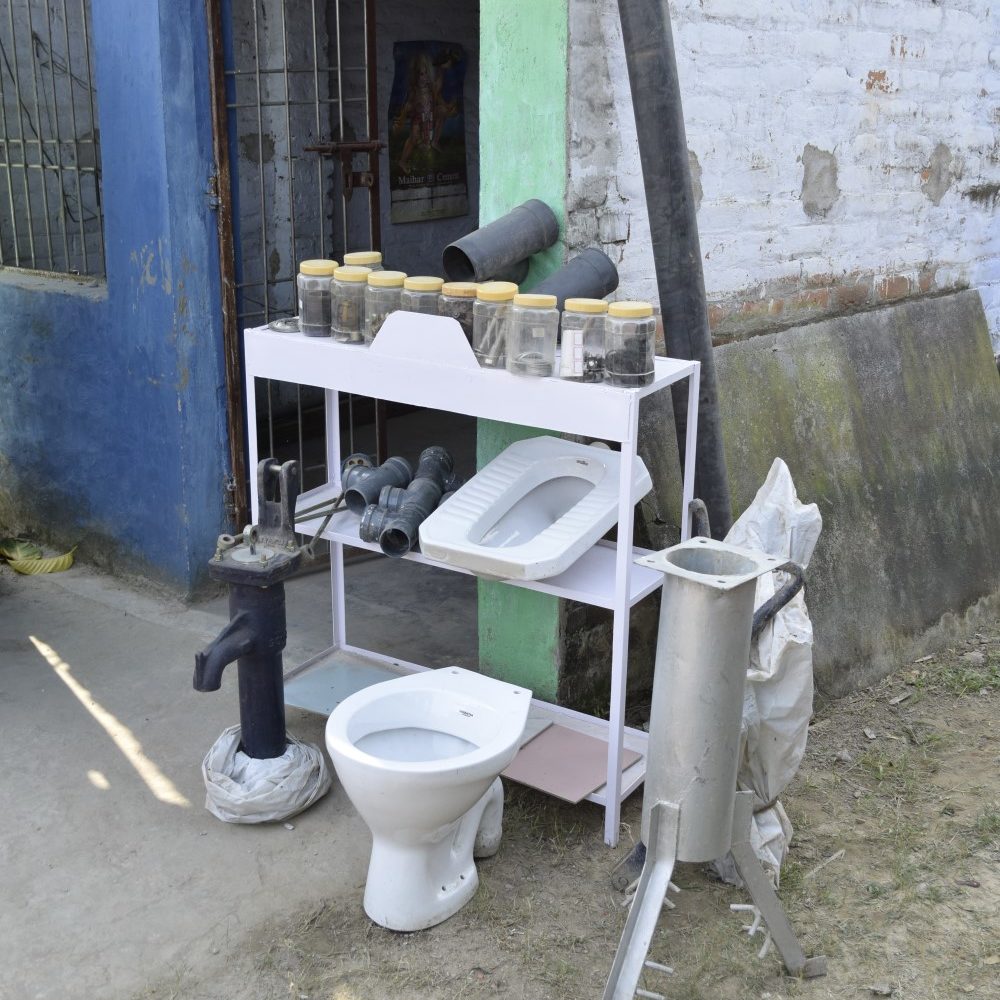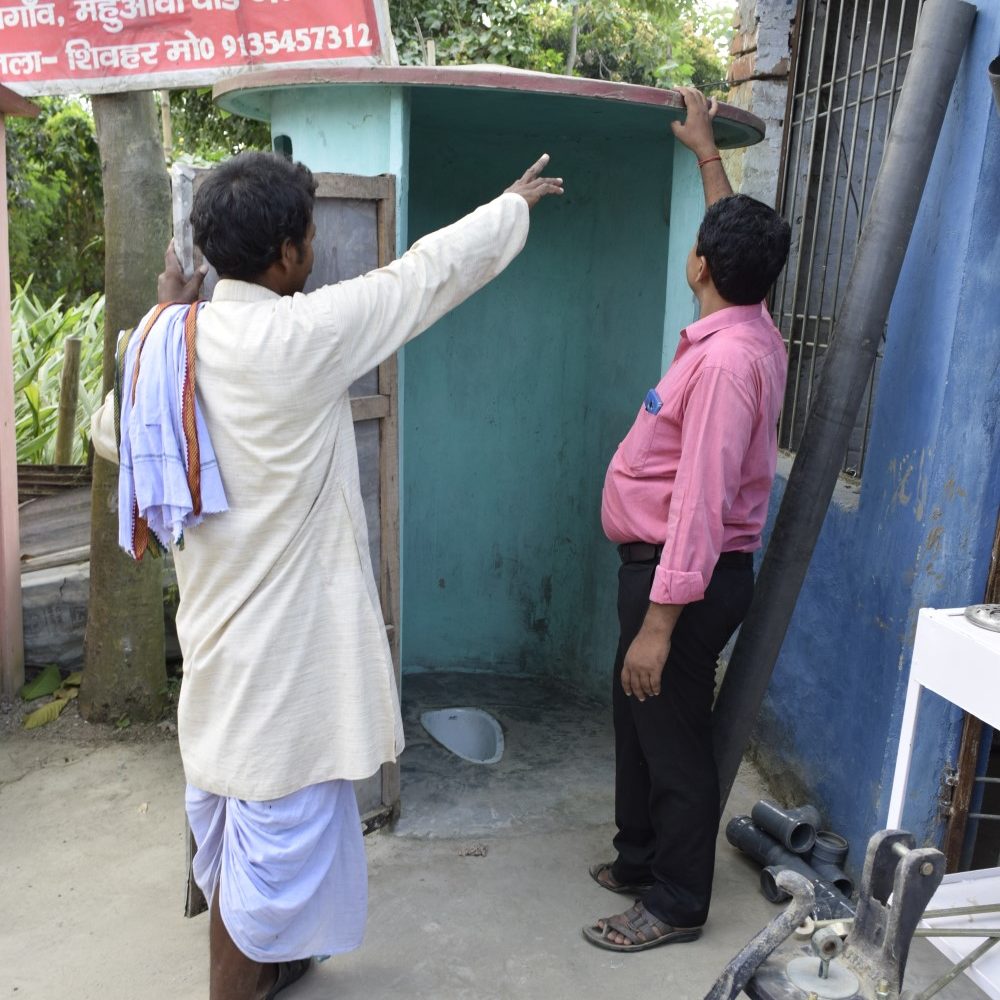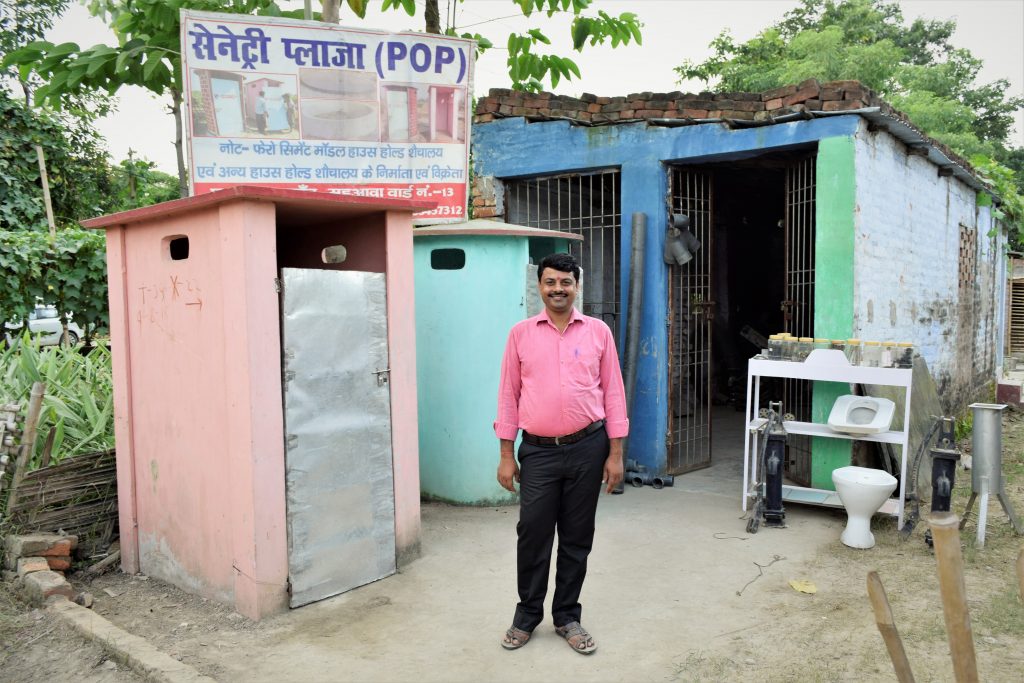Dharanidhar Kumar siempre fue conocido como "DK" por sus amigos. Pero ahora tiene un nuevo apodo: El Vendedor de Baños. Y él está bien con eso.
Un componente importante del enfoque de Water For People para garantizar el saneamiento sostenible es apoyar el saneamiento dirigido localmente. negocios Estos negocios son desarrollados por emprendedores, como DK, para cubrir una necesidad en el mercado, brindando a las familias servicios de saneamiento seguros, asequibles e ininterrumpidos, ya que los proveedores son locales, no a kilómetros de distancia. Esta labor forma parte de nuestro enfoque de "saneamiento como negocio".
Pero ¿cómo se ve en la práctica este programa de saneamiento basado en el mercado? ¿Qué servicios y materiales ofrecen las empresas? ¿Existe suficiente demanda para ellos? ¿El apoyo de Water For People realmente motiva a estos emprendedores a seguir evolucionando y creciendo para satisfacer las necesidades de sus comunidades?
DK vive en el distrito de Sheohar, en el estado de Bihar, al noroeste de India. DK había intentado -entre otras actividades de desarrollo comunitario en las que participaba - ayudar a las familias a construir retretes.
Pero seguía topándose con obstáculos.
El principal desafío era la disponibilidad de materiales para construir mejores baños. DK tendría que viajar a ciudades o distritos vecinos para conseguir los materiales que las familias necesitaban. Así que, aunque existía la demanda de mejores sanitarios, no podía satisfacerla.
En Bihar, Water For People, junto con socios locales, trabaja con un emprendedor para crear un Punto de Venta (POV), un punto de venta integral para todas las necesidades de saneamiento. Water For People y sus socios ofrecen capacitación sobre diversos temas, como la selección del sitio para el punto de venta, habilidades comerciales y de marketing, y habilidades técnicas como la construcción de losas para sanitarios y la instalación de letrinas. El emprendedor invierte en el establecimiento del punto de venta, y Water For People facilita la conexión con instituciones de microfinanzas (IMF) para obtener un préstamo inicial según sea necesario. Water For People también colabora con estas IMF para otorgar préstamos de saneamiento a familias para la construcción de letrinas domésticas, estimulando así la demanda de los servicios del POV.


El POP es a la vez una pequeña fábrica y un punto de venta. El propietario fabrica las losas y los anillos de concreto para las letrinas. Estos materiales se almacenan en la tienda junto con las tuberías, las puertas, los inodoros de cerámica y más. Además de vender estos materiales, muchos empresarios POP ofrecen la instalación de letrinas como un servicio a los clientes.
"Water For People nos capacitó no solo en la construcción de diversos sanitarios, sino que también nos proporcionó las técnicas de marketing adecuadas para venderlos", explica DK. "Mi negocio mejoró a medida que la gente empezó a apreciar la importancia de los sanitarios. Sabía que no me había equivocado al entrar en este negocio".
La demanda de letrinas era alta y el negocio estaba en auge. Ahora la demanda ha disminuido porque la mayoría de los hogares ya han comprado una letrina. Pero lo bueno de este modelo es que no instruye a los propietarios de los POP en cuanto a qué hacer después. En cambio, el modelo confía en que el emprendedor verá nuevas oportunidades de crecimiento y hará los cambios necesarios.
Aquí brilla el espíritu emprendedor de DK. "Ahora es el momento de empezar a almacenar accesorios de alta gama, como azulejos, puertas, grifos y otros accesorios para embellecer los baños", dice. "Además, desde que el pueblo tiene electricidad este año, la gente quiere agua corriente en sus baños".
La formación en marketing de DK le ha sido útil a medida que su negocio crece. "Cuando la gente viene a mí diciendo que quiere un grifo en el baño, les digo: '¿Por qué no pones también azulejos?'".
Aunque el apodo de DK, "Vendedor de Baños", empezó como una broma escéptica sobre si su negocio despegaría, ahora todos aprecian la importancia de su trabajo. Y DK no podría estar más orgulloso del negocio que ha creado y desarrollado.
"Siento que he contribuido a la transformación del país", afirma.

